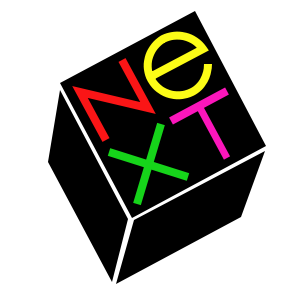 NEWS
NEWS
 NEWS
NEWS
 NEWS
NEWS
![]() Earlier our editor-in-chief Mark Hopkins wrote a piece about Jobs’ cloud and mobile vision from WWDC in 1997. I’d like to draw your attention even further back, to an interview Jobs did with Gary Wolf in Wired in 1996 when Jobs was still at NeXT.
Earlier our editor-in-chief Mark Hopkins wrote a piece about Jobs’ cloud and mobile vision from WWDC in 1997. I’d like to draw your attention even further back, to an interview Jobs did with Gary Wolf in Wired in 1996 when Jobs was still at NeXT.
Wolf opens the piece noting that Jobs had been right twice already. “Although NeXT failed to sell its elegant and infamously buggy black box, Jobs’s fundamental insight – that personal computers were destined to be connected to each other and live on networks – was just as accurate as his earlier prophecy that computers were destined to become personal appliances,” Wolf wrote.
Here’s an excerpt:
The desktop computer industry is dead. Innovation has virtually ceased. Microsoft dominates with very little innovation. That’s over. Apple lost. The desktop market has entered the dark ages, and it’s going to be in the dark ages for the next 10 years, or certainly for the rest of this decade. […]
To have a new metaphor, you really need new issues. The desktop metaphor was invented because one, you were a stand-alone device, and two, you had to manage your own storage. That’s a very big thing in a desktop world. And that may go away. You may not have to manage your own storage. You may not store much before too long.
I don’t store anything anymore, really. I use a lot of e-mail and the Web, and with both of those I don’t have to ever manage storage. As a matter of fact, my favorite way of reminding myself to do something is to send myself e-mail. That’s my storage.The minute that I don’t have to manage my own storage, and the minute I live primarily in a connected versus a stand-alone world, there are new options for metaphors.
Talk about taking the long view. iCloud is just now coming to fruition, but Jobs was already thinking about this in 1996. What NeXT and Jobs were really up to at the time was WebObjects, a Java application framework that was much ahead of its time. Jobs had the idea that rapid Web application development was the way of the future nearly decade before Ruby on Rails (and slightly before Zope). It turns out that selling licenses for development frameworks isn’t a great business model. Devs want it free and they want it open source. But PaaS companies ranging from Salesforce.com/Heroku to Oracle to VMware to Engine Yard have figured out how to profit from these breakthroughs.
In the meantime, Jobs built a radical new vision for the cloud and post-PC era with big data at the heart of it.
One of the most interesting things about Apple to me is how it has managed to avoid what Clayton Christensen calls the “innovator’s dilemma.” What Wolf’s interview and the WWDC speech show us is that Jobs had a radical long term vision, one that involved eating Apple’s core product, desktop computers. But while many public companies are put into a bind by having to balance short term shareholder expectations and quarterly numbers with the need to innovate and take risks. Jobs figured out how to pace development and product releases. He’s said that the iPad was actually developed before the iPhone, but he knew that the iPhone had to come first. I doubt the iPhone could have come before the iPad.
Jobs didn’t invent the Apple PC – Steve Wozniak did. He didn’t invent the Macintosh either – Jef Raskin did. He did not design the “i” products – Jonathan Ives did. But it was Jobs’ remarkable foresight, his selection of collaborators and, as John Gruber wrote, the fact that “he knew what to give a shit about” that made him a unique individual in the shaping of the tech industry.
The services economy has its nascent beginnings in the late 1990s. The PC had started to become a household item. And the idea of the processor and its capabilities were not lost on the geeks of the time. As we look forward to the next 15 years what do we see emerging that will be common place when we look back from the year 2026?
THANK YOU